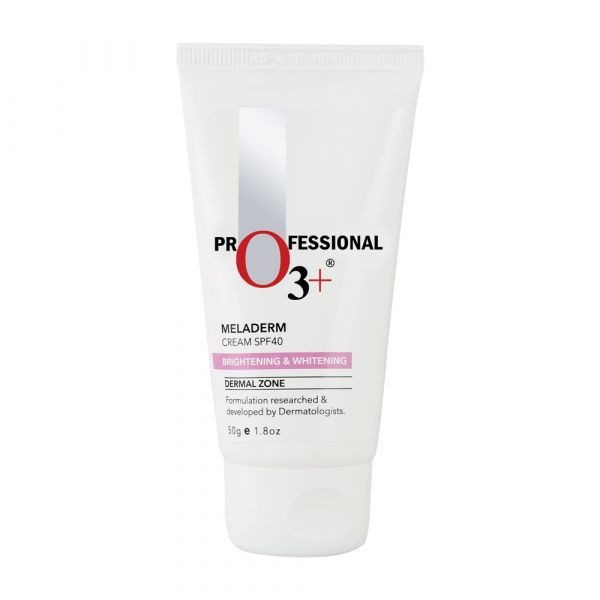
You’re not alone if you have areas of darker pigmentation on your face! Furthermore, you’ve come to the right site if you’re curious about the reasons for hyperpigmentation and how to treat it. There are methods you can take to lessen or prevent brown spots, blotchy skin, and a rough skin texture, which will help your skin look younger for longer even if totally erasing the signs of hyperpigmentation is quite tough. Continue reading to learn what hyperpigmentation is, why it occurs, and how to cure it.
What Is Hyperpigmentation?
When particular regions of your skin are darker than the rest, it is referred to as hyperpigmentation or skin pigmentation. People with all skin types are susceptible to this very typical skin condition. It might take the form of a few small spots, a huge area, or—in exceptional circumstances—the entire body.
When your skin generates more melanin than usual, hyperpigmentation results. Your skin’s color is produced by a pigment called melanin. As the extra pigment is deposited deep within the skin, it appears darker than the surrounding skin. At top brands like O3+, you can find the best cream for pigmentation.
Causes of Hyperpigmentation
- Sunburn– The sun’s UV rays can damage your skin, and that is much more common. As much as 80% of the symptoms of early skin aging are caused by them. Hyperpigmentation, which appears as age spots as a result of lifelong sun exposure, may be one of these symptoms.
- Melasma- Hormonal changes may be indicated by patches of dark pigmentation, which are typically on the face. However, pregnant hormones are not the only factor that predisposes to it. Chloasma is occasionally referred to as the “pregnancy mask” while it is present.
- Medical Condition- In a few instances, hyperpigmentation may be a sign of an underlying medical issue, such as Addison’s disease. The best course of action is always to get expert assistance from your doctor or dermatologist if you’re unsure of what’s causing the hyperpigmentation.
How to Prevent From Pigmentation
1. Wear Sunscreen-
Sun damage is one of the primary causes of pigmentation. The harmful UV rays of the sun can trigger the production of melanin, leading to the development of dark spots and patches on the skin. Therefore, it is important to wear sunscreen daily, even on cloudy days. Choose a broad-spectrum sunscreen with an SPF of at least 30 and apply it liberally to all exposed areas of the skin.
2. Use Anti-Pigmentation Creams-
Anti-pigmentation creams are topical products that contain ingredients such as hydroquinone, kojic acid, and vitamin C, which help lighten dark spots and even out the skin tone. The best anti pigmentation cream is the O3+ Dermal Zone Meladerm Whitening Cream. It contains a blend of natural ingredients such as bearberry extract, licorice extract, and vitamin C that help reduce pigmentation and brighten the skin.
To use, apply a small amount of cream to the affected areas of the skin, and massage gently until fully absorbed. Use twice a day for best results.
3. Avoid Harsh Chemicals
Harsh chemicals such as sulfates, parabens, and fragrances can irritate the skin and trigger pigmentation. Therefore, it is important to choose skincare products that are free from these harmful chemicals. Look for products that are labeled as “non-comedogenic” or “hypoallergenic,” as they are less likely to cause irritation and breakouts.
4- Stay Hydrated
Dehydration can make the skin look dull and tired, which can exacerbate pigmentation. Therefore, it is important to drink plenty of water throughout the day to keep the skin hydrated and healthy. Aim for at least 8-10 glasses of water per day.
5. Eat Balanced Diet
What you eat can have a significant impact on the health of your skin. A diet rich in fruits, vegetables, and whole grains can provide the skin with the necessary nutrients and antioxidants to fight pigmentation and other skin concerns. Foods rich in vitamin C, such as citrus fruits, kiwis, and strawberries, can help brighten the skin and reduce pigmentation.
6. Get Enough Sleep
Sleep is essential for healthy skin. Lack of sleep can lead to dark circles, dullness, and exacerbate pigmentation. Aim for at least 7-8 hours of sleep per night to allow the skin to regenerate and repair itself.
7. Seek Professional Treatment
If you have severe pigmentation or if home remedies do not work, it is advisable to seek professional treatment. Treatments such as chemical peels, laser therapy, and microdermabrasion can help reduce pigmentation and even out the skin tone.
Patches of hyperpigmentation are most often caused by sun damage, which can be greatly reduced by using SPF and avoiding direct sunlight. Utilising cosmetics that include chemicals like retinol or niacinamide can aid with the treatment of darker skin pigmentation.
While you’re here, you might be interested in reading about other common skin issues like fine lines and wrinkles or learning how to create a thorough anti-aging skin care routine for smoother, younger-looking skin, regardless of your age.
For More Blog Visit: Face Cream Collection





